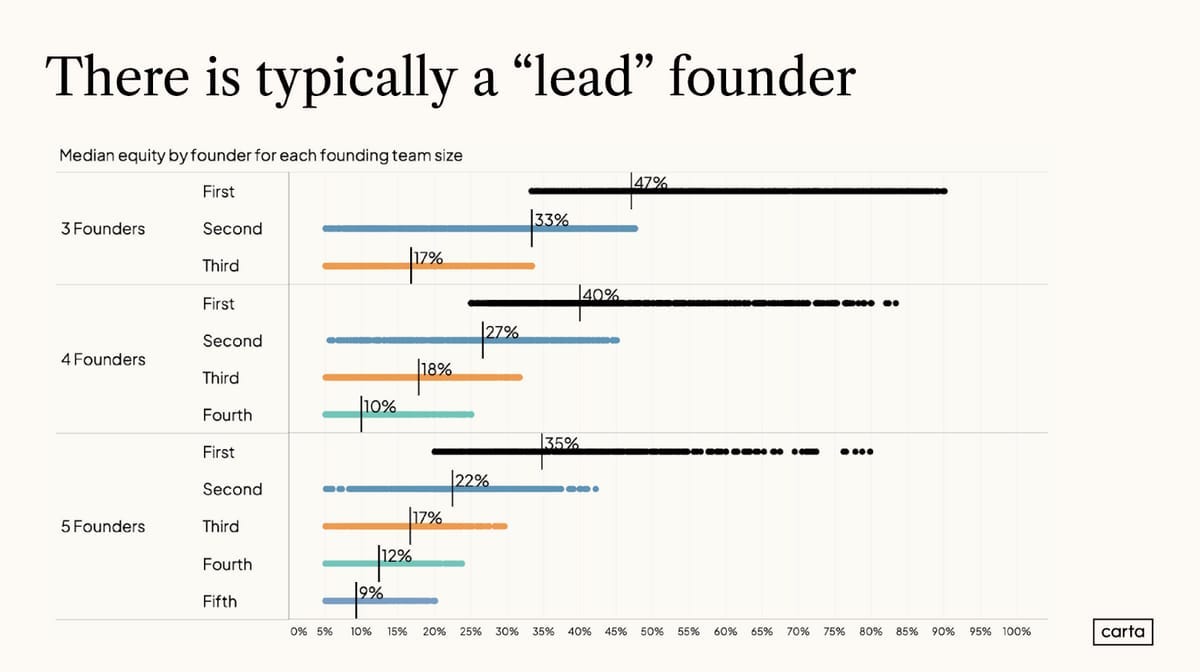When You Should (and Shouldn't) Split Equity Evenly
Turns out only 41% of startups use an even split
If you ask a partner at Y Combinator how you and your cofounder(s) should split equity, most would probably answer with “evenly.”
But, interestingly, data from Carta shows that only 41% of 2-founder teams split equity evenly and larger cofounder teams tend to have even more unequal splits.
Why is this happening and what are the situations where a non-even split is appropriate? 👇
How to Split Equity between Cofounders
Most non-even splits happen for one of the following reasons. I’ve grouped them into “bad” reasons where the equity likely should have been split evenly, and “good” reasons where splitting unequally makes sense.
Bad Reasons to Not Split Equity Evenly
❌ I came up with the original idea / I’ve contributed more so far
Founders often give too much importance for early contributions. The average time before an exit for a startup is 7.5 years.
Whatever differences exist between the early contributions of cofounders typically wash out over time.
Even if you’ve raised a small amount of money or built and launched an initial product, over a long time horizon it’s not that big of a difference.
Keep reading with a 7-day free trial
Subscribe to Houck's Newsletter to keep reading this post and get 7 days of free access to the full post archives.





